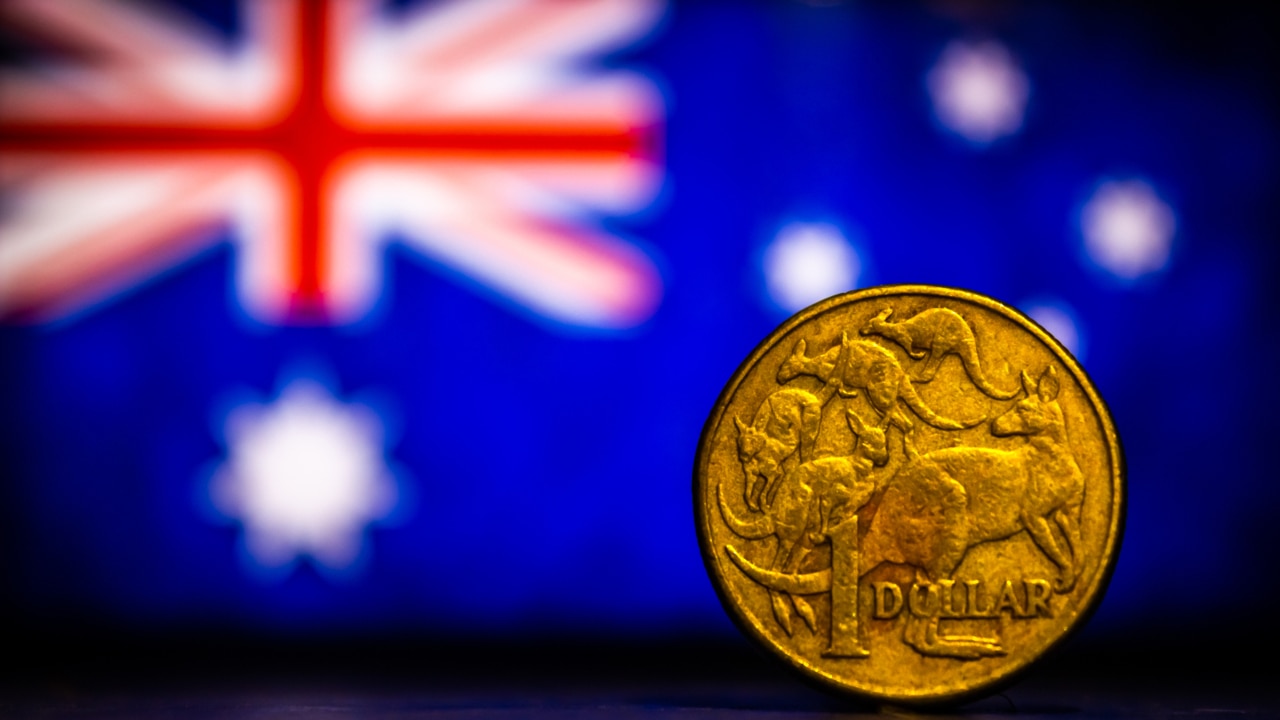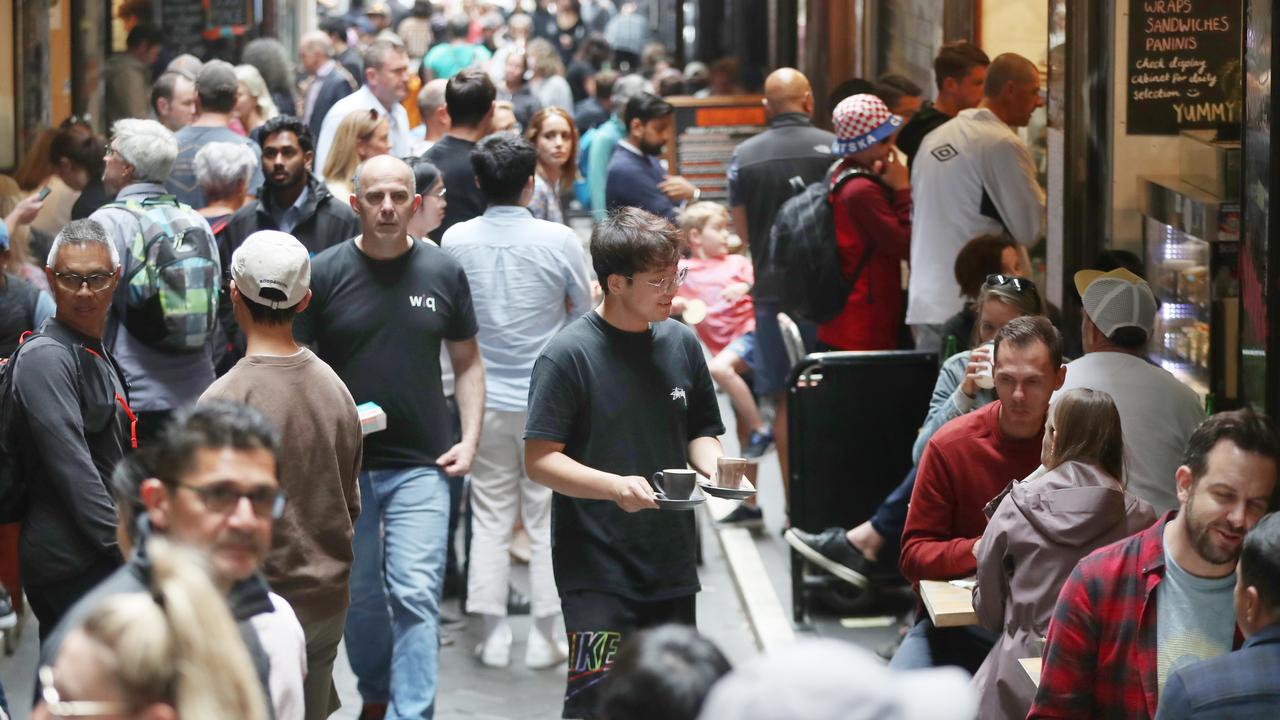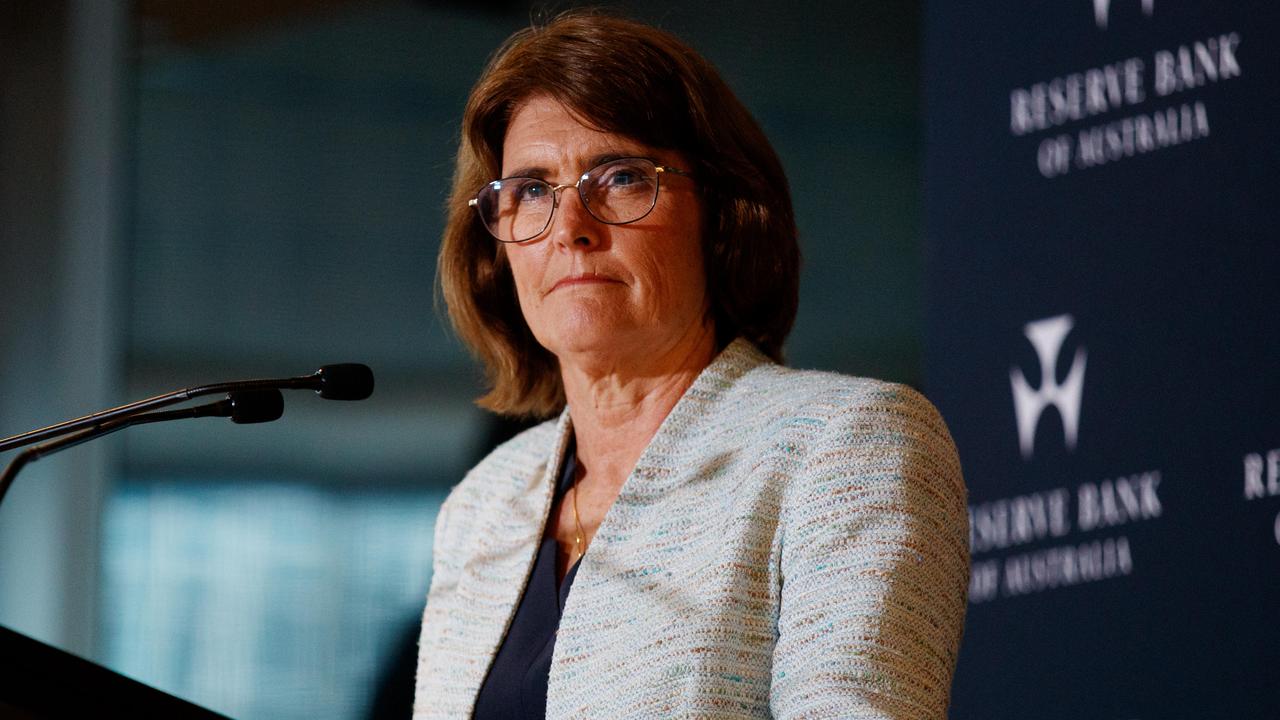RBA pauses interest rates in August although inflation still a huge concern
The RBA has held interest rates steady as homeowners around the country breathe a palpable sigh of relief.

Interest Rates
Don't miss out on the headlines from Interest Rates. Followed categories will be added to My News.
The RBA has paused interest rates at its monthly meeting for the second time in a row in a move that will be a massive relief for millions of borrowers around the country.
On Tuesday afternoon, Australia’s central bank announced it was keeping the cash rate at 4.1 per cent, largely in line with market expectations.
Australia’s central bank has hiked interest rates every month since May last year, with the exception of April, July and now, when rates were momentarily paused.
Still, as it stands, Australia’s are in the throes of the nation’s highest cash rate since 2011, enduring 400 basis point increases over the space of a year.
The cash rate has jumped significantly from the historic pandemic low of 0.1 per cent in what has been dubbed the fastest tightening cycle on record.
Consumer price index (CPI) figures released last month are to thank for the RBA’s sudden U-turn, which showed their war against inflation is working.
The headline consumer price index for the latest quarter was six per cent higher than a year earlier, but was down from seven per cent in the March quarter.
That is the lowest quarterly rate rise since September 2021 in a sign of inflation finally being brought to heel.
Ultimately, however, this is still far below the RBA’s target of keeping inflation between two to three per cent, sparking warnings that more rate rises are still lurking on the horizon.
Outgoing RBA governor Philip Lowe said in a statement “the Board decided to leave the cash rate target unchanged”.

“The higher interest rates are working to establish a more sustainable balance between supply and demand in the economy and will continue to do so,” Mr Lowe continued.
“In light of this and the uncertainty surrounding the economic outlook, the Board again decided to hold interest rates steady this month.”
He admitted inflation is “still too high” and did not rule out more rate hikes.
“Goods price inflation has eased, but the prices of many services are rising briskly,” Mr Lowe noted.
“Rent inflation is also elevated...
“Conditions in the labour market remain very tight, although they have eased a little. Job vacancies and advertisements are still at very high levels, although firms report that labour shortages have lessened.”
In the long run, he said he was hopeful that inflation would return to its target rate.
“The recent data are consistent with inflation returning to the 2–3 per cent target range over the forecast horizon and with output and employment continuing to grow,” he wrote.
“There are though significant uncertainties.
“Services price inflation has been surprisingly persistent overseas and the same could occur in Australia.
“There are also uncertainties regarding the lags in the operation of monetary policy and how firms’ pricing decisions and wages will respond to the slowing in the economy at a time when the labour market remains tight.”
Minutes after the RBA made the call, Jim Chalmers at Question Time in parliament said it was good news for millions of Australians.
“This will be a big relief for Australians with a mortgage,” he said.
“This is a welcome reprieve for Australians doing it tough enough.”

One expert, Dr Mala Raghavan from the University of Tasmania, correctly predicted that the RBA would hold the rates, but said the timing of the RBA’s leadership shakeup around had likely played a part in the decision.
“The RBA was expected to put a pause on its cash rate hike in August, not primarily because of falling inflation but rather due to the upcoming appointment of a new Governor Bullock, who will take office in September,” she said.
“As the outgoing Governor’s tenure comes to an end, there might be less pressure on Governor Lowe to raise the cash rate.”
Richard Whitten, money expert at comparison website Finder, said the pause was “welcome news” for borrowers who have been doing it tough.
“Inflation is slowing down, which suggests that previous rate hikes are working,” Mr Whitten said.
Eleanor Creagh, senior economist at property analytics firm PropTrack, warned that inflation still remains too high.
“Although progress is being made, inflation remains elevated,” she said.
“Services inflation remains persistent and both headline and trimmed mean inflation are still well above target.
“As such, the statement highlighted that the board is ready to do more should it be necessary.”
Three quarters (76%, 29/38) of an expert panel of economists hosted by Finder believe the cash rate will peak between July and September this year.
The panel’s forecast for the average cash rate peak is 4.4 per cent, which means there is still a way to go.

Only one of Australia’s biggest four banks correctly predicted a pause was likely for the month of August.
ANZ forecast that the rate would remain paused while the other big banks were bracing for a 25 basis point increase.
CBA, Westpac and NAB were all bracing for an increase.
In fact, NAB was expecting an increase in August and also next month in September, forecasting that 4.4 per cent will be the terminal rate.
Had the rate increased, then tens of thousands of more Australians would have been at risk of defaulting on their mortgage.
Research firm Roy Morgan released data in July that concluded that a 25 basis point increase to the cash rate would plunge 51,000 home loan borrowers into mortgage stress.
They defined mortgage distress as someone who spends between 25 per cent and 45 per cent of their income on paying back their debt to the bank.
Mortgagees were put into an even more dire category of “extremely at risk” if borrowers had to spend 45 per cent or more of their income on paying off the loan.
Staggeringly, this number now sits at 922,000 people.
Already, data from the Australian Prudential Regulation Authority has found that in March this year, the amount of defaults had increased to $15 billion worth of home loans.
Originally published as RBA pauses interest rates in August although inflation still a huge concern



